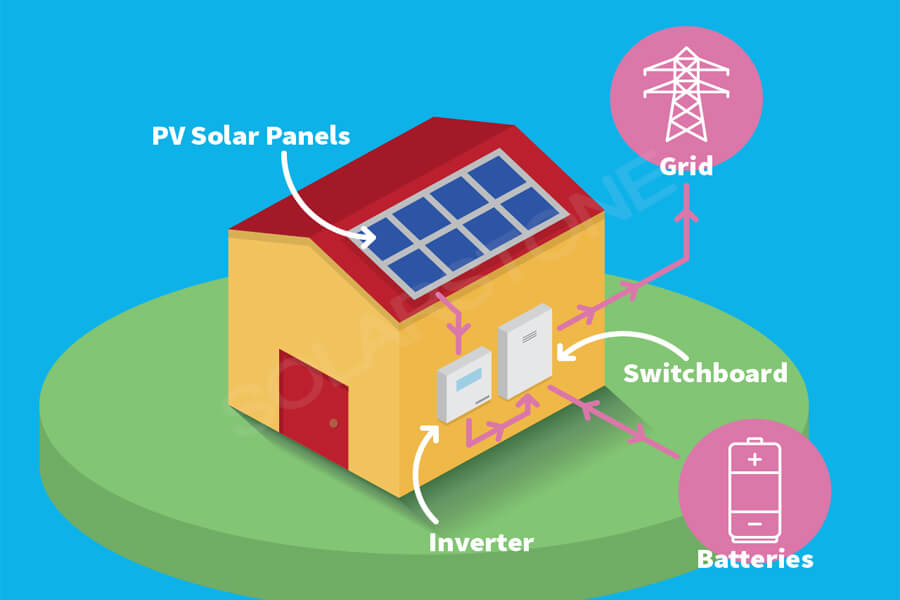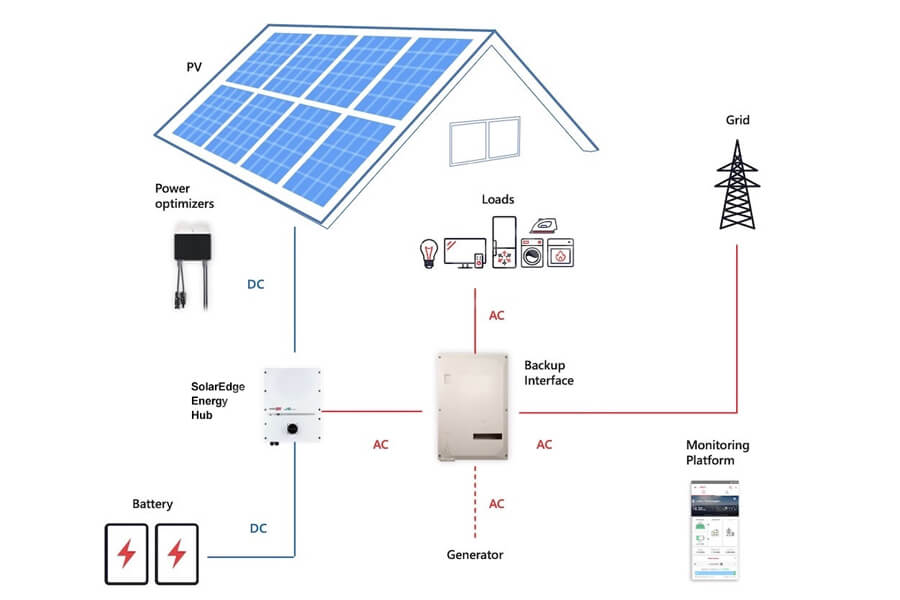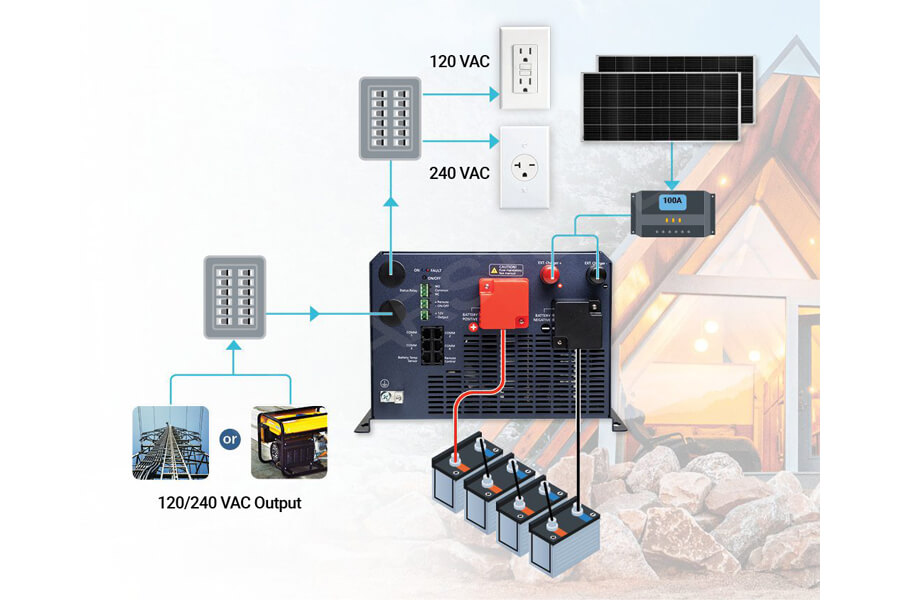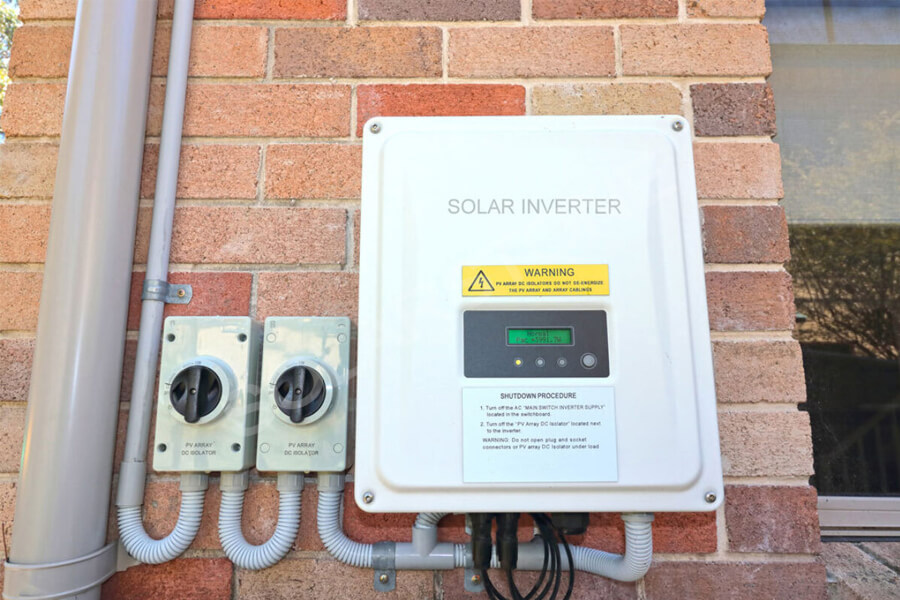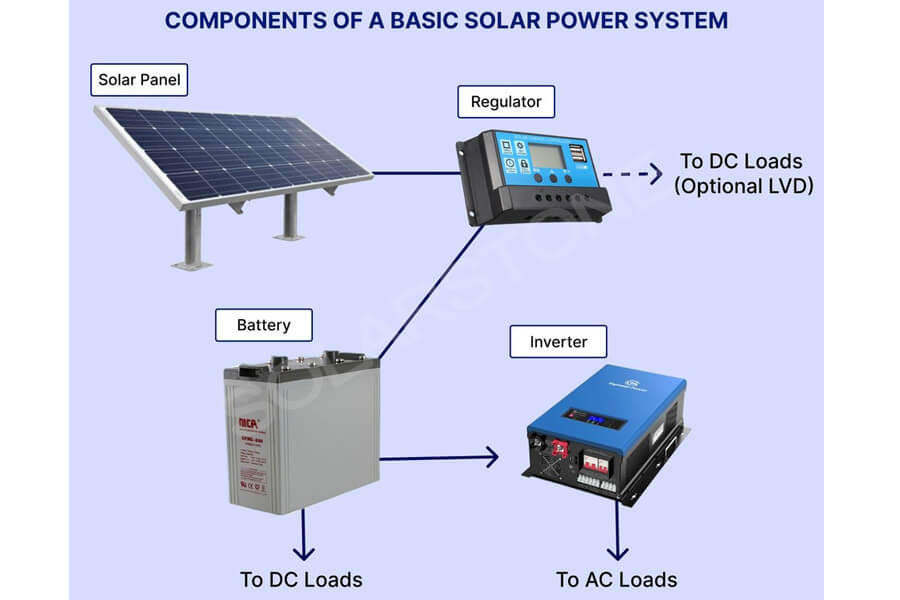When using solar panels to generate electricity on their own, inverters have a very important function. Solar panels generate direct current (DC) like batteries, but most of your household appliances require alternating current (AC) to operate. Solar inverters convert direct current into alternating current, so your electrical equipment can use the kilowatt hours generated by solar panels.
However, solar inverters also have another little-known important function – they synchronize with the voltage and frequency of the local power grid. In this way, homes and buildings can switch between solar energy and the power grid at any time, or they can use both sources of energy simultaneously – all without the need for physical switches.
Traditional series inverters aim to only convert direct current from solar panels, but many systems now include batteries. If you plan to use energy storage batteries in your home solar system, you will need a hybrid inverter.
The hybrid inverter aims to manage solar panels and batteries that work together. Below, we will discuss the main features you should look for in solar inverters, and we will also compare the main types available in the market today.
Choose high-quality solar inverters
If you want to achieve the best results through solar energy, the quality of the inverter is equally important as the quality of the solar panel. Please remember that before using your household appliances, all the electricity generated will go through the inverter. You can use the most efficient solar panels on the market, but if your inverter quality is poor, the overall system performance will be poor.
When comparing different solar inverter models, you should look for the following specifications as a starting point:
Conversion efficiency from DC to AC power supply
Manufacturer’s warranty
Leading manufacturers’ solar inverters have a typical conversion efficiency of over 97%. In other words, for every 100 kilowatt hours produced by solar panels (DC), they provide over 97 kilowatt hours of available electricity (AC).
High quality solar inverters have a typical lifespan, typically including a standard 5-year warranty. However, depending on the specific inverter you choose, the manufacturer provides an extended warranty of 10 years or more.
Professional tip: Having a reliable warranty is very important: If your inverter malfunctions during the warranty period, you can get a new one for free. Please be sure to contact qualified solar installation personnel to ensure that the warranty for solar panels and inverters does not expire due to incorrect installation!
An efficient inverter with long-term warranty ensures stable power supply for your solar panels. However, when comparing inverters, you must also consider other important characteristics.


